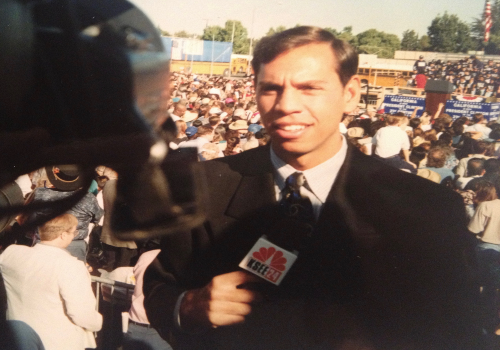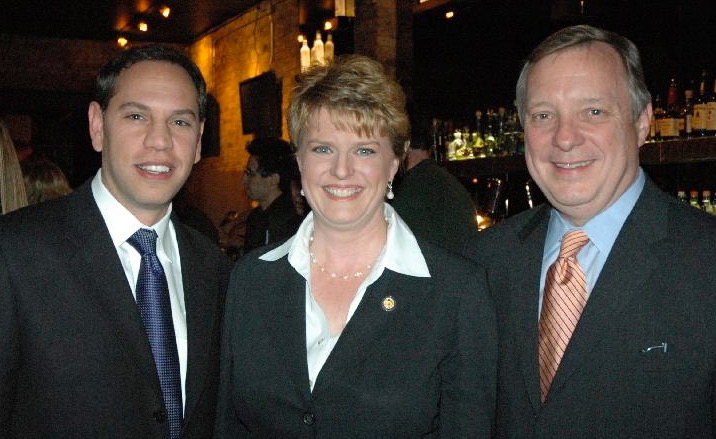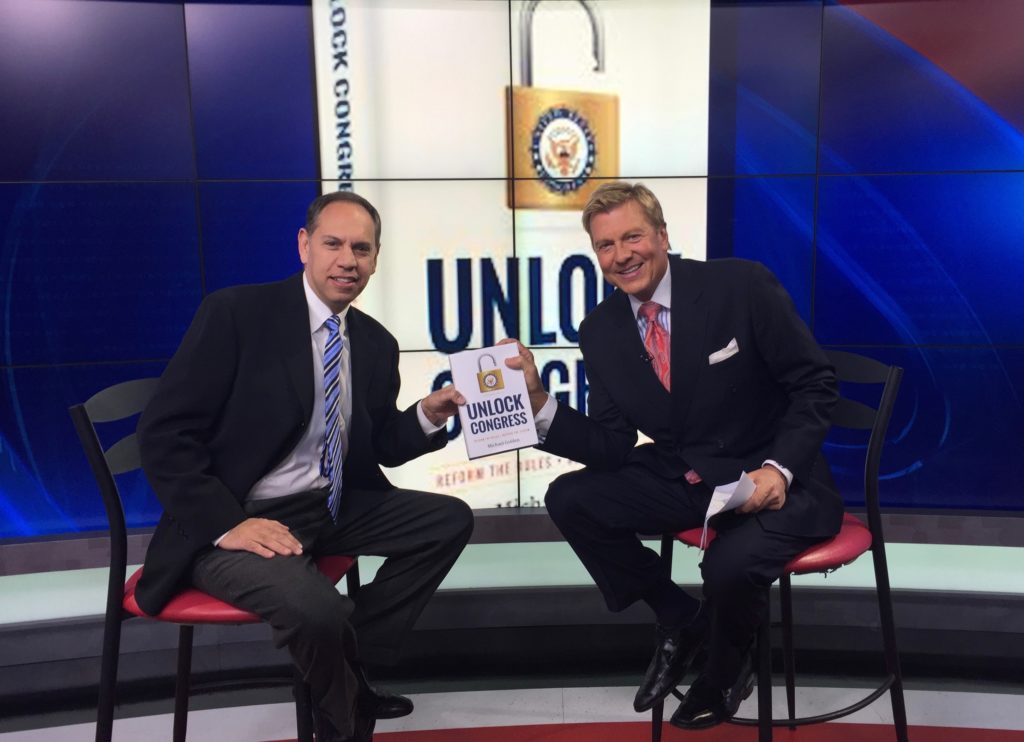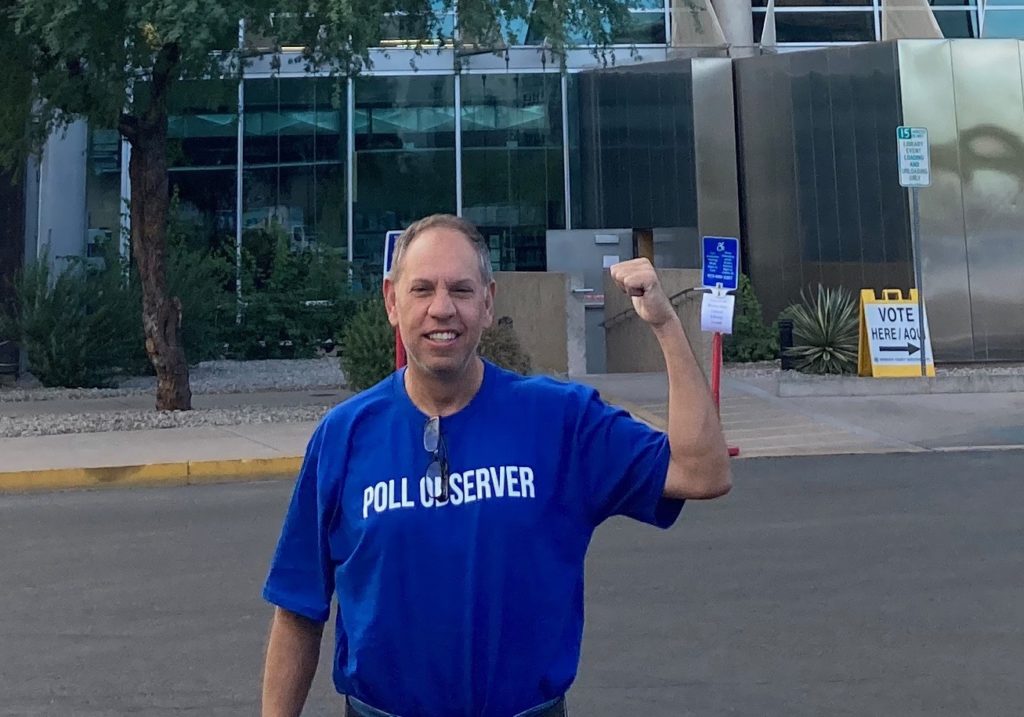Electoral politics hits you right in the gut. Whether it’s an exhilarating victory that shoots you straight through the clouds or a crushing loss that makes you feel like you need emergency surgery — it’s personal.
When you invest your time, money, energy, heart and soul into any cause you believe in, you open yourself up. You might as well be in love. There’s no net.
A whole lot of Americans are feeling that depth of political commitment for the very first time this year. The sidelines are emptier than they’ve been in more than a century. It’s a great thing.
I first caught the political bug in my 20’s, while working as a TV news reporter in Iowa, Illinois, and California.

I covered everything under the sun, including local government and elections, and I quickly learned how huge the stakes were for every American — but especially for the folks who start with the least. For those not born with an automatic fair shot. That’s when I became a progressive.
In 2001, I started managing Democratic campaigns back home in Illinois. I truly Ioved it. Even when the losses split my insides.

A decade later, I left the campaign world. A friend asked me to join him in launching a community college scholarship program. One Million Degrees would impact people’s lives in a more direct fashion, and it seemed like a great opportunity to leverage some of the political capital and experience I’d accrued over the years.
But I was still pretty obsessed with politics. And like 85-95 percent of Americans, I was totally fed up with our government’s lack of performance. My thinking started to become far less ideological, far more practical, and it motivated me to author a book called Unlock Congress.
It took two years to research and write Unlock Congress, and its official publication date was April 15, 2015 — Tax Day. This was by design, as the metaphor I laid out in the book was one that depicted a defective government product — funded by our tax dollars — and ways in which we could exercise our civic warranty to repair it.

Exactly two months to the day after the book’s release, Donald Trump took his ride down the escalator and began indiscriminately insulting people. At the time, I didn’t think much of it. Little did I know that his candidacy would completely suck the oxygen out of any national discussion about fixing our broken government.
I also had no idea that I, myself, would get sucked right back into the partisan vortex. Trump’s noxious words and actions — and political success — made me feel like I had no choice. When your house is on fire, you grab the nearest bucket. Any ideas you may have had about renovation are immediately shunted to the side.
Honestly, I never thought I’d see our country come to this point of trauma in my lifetime. In 1968, I was barely a toddler. That year, the Tet Offensive escalated a senseless war in Vietnam that had already been torturing America’s body politic. Assassinations robbed us of MLK and RFK. Television cameras captured Chicago Police officers pulverizing protesters in the streets outside the Democratic National Convention. And an avowed segregationist governor of Alabama, George Wallace, won nine million votes and carried five states in the presidential election.
America has made some strides since that dark time, but half a century later, we’ve started to move backwards again. Trump voters can rationalize their support for him any way they want. But to the extent that the president has done things that they believe are good, at the very same time, in word and deed, Trump has consistently poured gasoline on the flames of racism in America. Ta-Nehisi Coates put it best:
“Certainly not every Trump voter is a white supremacist, just as not every white person in the Jim Crow South was a white supremacist. But every Trump voter felt it acceptable to hand the fate of the country over to one.”
Of course, this is a matter of opinion, by definition. It’s personal. “Trumpers” will take issue with my description, which is what makes them Trumpers. And the things about Trump that I find lawless and/or morally bankrupt are part of what makes me a proud progressive. Right back where I started.

Two years ago, just before the midterms, congressional scholar Norman J. Ornstein and I penned an article entitled: “Our democracy’s stress test: It’s coming on election day.” In the piece, we wrote that unless the Democrats regained the House majority, the president would not be held to account:
“If Trump has committed crimes, aren’t the American people entitled to know? If laws were broken, shouldn’t Congress at least record a vote on whether to impeach? Should voters not have the opportunity to see where their elected representatives officially stand?”
American voters passed that stress test, electing a massive 41-seat House Majority — the most since Watergate.
Is it hyperbole to say that the 2020 election is our society’s stress test? Again, it’s an eye-of-the-beholder question.
Through my lens, it is most certainly the case. I wish for a country that starts moving back to the future, back onto that righteous track where the goal is to keep moving forward — in the direction of a more perfect union.
It’s pretty hard to write those words — “perfect union” — in the same sentence these days. Yet we know from our history just how dramatically the results of a single election can alter the course of America.
It’s time to decide who we are. To choose. To count every vote. And to be prepared to stay in the fight for what we know is right — for as long as it takes.
Progressivism and pragmatism are not mutually exclusive. But when the stakes are as sky high as they are in 2020, one comes before the other.
Politics is personal. Let the future begin.

